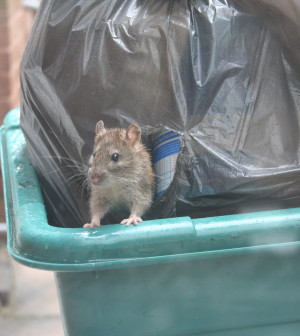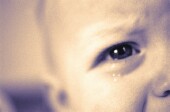- Could Your Grocery Store Meat Be Causing Recurring UTIs?
- Are You Making This Expensive Thermostat Error This Winter?
- Recognizing the Signs of Hypothyroidism
- 10 Strategies to Overcome Insomnia
- Could Artificial Sweeteners Be Aging the Brain Faster?
- Techniques for Soothing Your Nervous System
- Does the Water in Your House Smell Funny? Here’s Why
- Can a Daily Dose of Apple Cider Vinegar Actually Aid Weight Loss?
- 6 Health Beverages That Can Actually Spike Your Blood Sugar
- Treatment Options for Social Anxiety Disorder
Steer Clear of Cold Meds for Babies, FDA Advises


Most babies and young children don’t need medicines if they have a cold, the U.S. Food and Drug Administration says.
Over-the-counter (OTC) cold and cough medicine should not be given to children younger than 2 because they could cause serious and potentially deadly side effects, the agency warned.
American adults average about three colds a year, but children get them more often. When children get a cold, parents might want to give them pain relievers, decongestants and other medicines, but often the best approach is rest and care, the FDA said in a news release.
“A cold is self-limited, and patients will get better on their own in a week or two without any need for medications. For older children, some OTC medicines can help relieve the symptoms — but won’t change the natural course of the cold or make it go away faster,” Dr. Amy Taylor, a medical officer in FDA’s Division of Pediatric and Maternal Health, said in the news release.
Antibiotics are useless because they treat bacterial infections, while colds are usually caused by viruses.
Coughs are a normal symptom of a cold and actually provide some benefits, Taylor noted.
“Coughs help the body clear the mucus out of the airway and protect the lungs; so you don’t want to suppress all coughs,” she said.
Non-drug treatments to ease coughs in children with colds include giving them plenty of fluids, especially warm drinks to soothe the throat.
While most children with colds do not need to see a doctor, Taylor said parents should call the doctor if they see any of these symptoms:
- A fever in an infant aged 2 months or younger, or a fever of 102 Fahrenheit or higher at any age.
- Signs of breathing problems, including nostrils widening with each breath, wheezing, fast breathing or the ribs showing with each breath.
- Blue lips, ear pain, not eating or drinking, signs of dehydration.
- Excessive crankiness or sleepiness, a cough that lasts for more than three weeks, or worsening condition.
“You have to know your child,” Taylor said. “With small infants, fever is a major concern, and you need medical advice. If you are worried about your child’s symptoms, at any age, call your pediatrician for advice.”
More information
The American Lung Association has more about the common cold.
Source: HealthDay
Copyright © 2026 HealthDay. All rights reserved.










